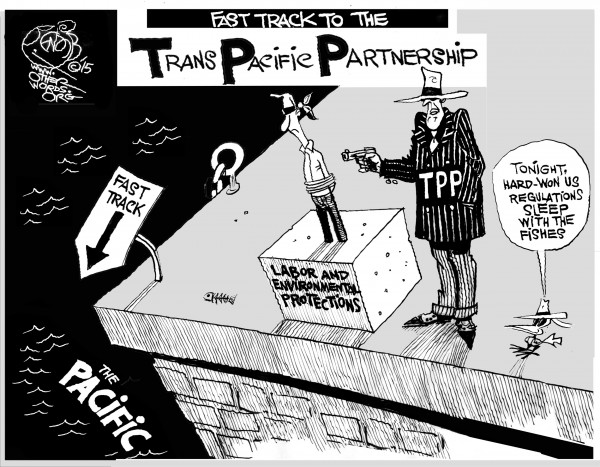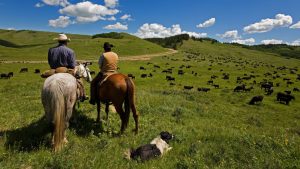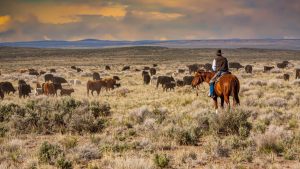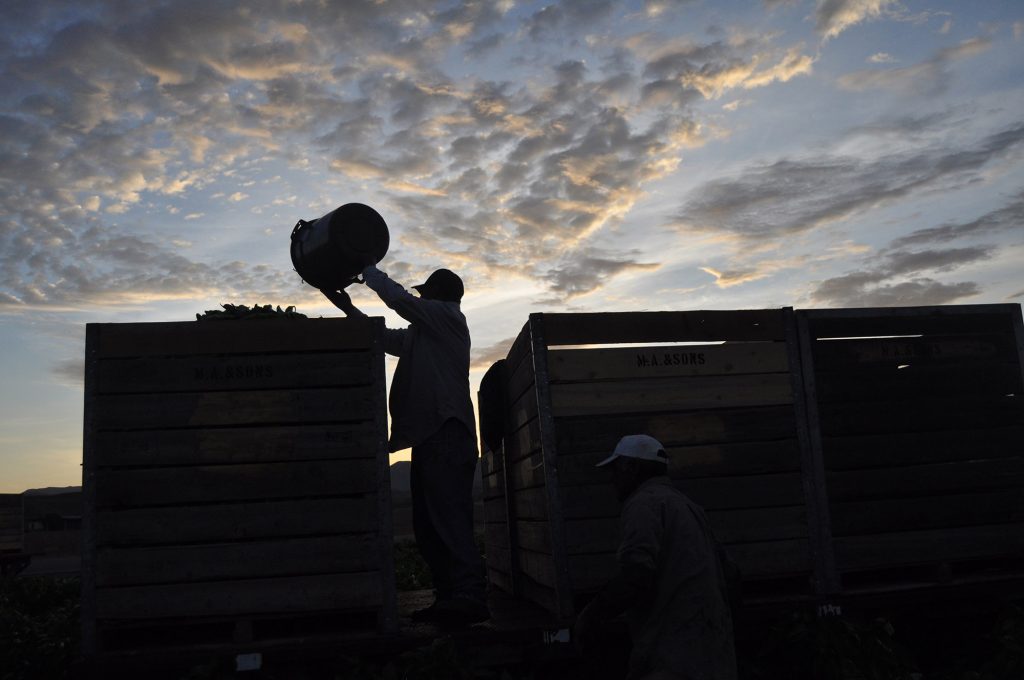Agriculture and Food
Creating a food system that works for everyone
WORC’s Agriculture and Food Campaign addresses one of the fundamental problems facing rural America: the need to advance the economic and environmental sustainability of family farms and ranches.
The Campaign challenges an industry that has little regard for biodiversity, sustainability, animal well-being, public health or the rural economy.
The Campaign is working to revitalize rural communities through grassroots action and local projects that foster sustainable agricultural practices, owner-operated businesses and cooperatives, fair competition in agricultural markets, conservation of land, water and air, and availability of fresh, healthful, locally-produced foods.
Fair Trade

American trade policy should strengthen, not weaken, the health, environment, food sovereignty, working conditions, labor rights, and transparent, competitive market principles of this country and all countries.
WORC’ s Trade Bill of Rights outlines basic fair trade principles, including
- The right of countries to preserve family farms and promote global food security.
- Strong labor, environmental and public health standards.
- Fair and democratic negotiations processes that allow for public input by the very people affected by the agreements.
Food Safety
A growing number of consumers are beginning to doubt the safety, nutrition and sustainability of our agriculture and food system. At the same time, more and more young people are turning to farming. Communities across the nation are exploring ways to support local food production, and farmers are creating thriving food businesses.
The interest and demand for local foods provides our members and affiliates with many opportunities to develop the infrastructure for local food sourcing, like farmers markets, co-ops and food hubs as well as address regulatory and policy obstacles to local food and value-added production.
Organizing at the community level to support local food infrastructure increases income and jobs, especially in rural communities that lack food security, and replaces food imports with fresh, wholesome locally grown and processed food.
Livestock Market Reform
A small handful of corporations dominate the nation’s food supply. The market control of the top four firms in food retailing, red meat, grain, poultry and milk processing is at a historic high.
Four meat packers now slaughter four of every five of the fat cattle in the United States. This unprecedented level of market consolidation effectively eliminates free market competition to the detriment of independent family farmers and consumers.
The public policies shaping the U.S. farm and food system are failing the family farmers and ranchers who produce our food. Farmers and ranchers have lost income and independence. Too many have lost their farms and ranches to a system favoring multi-national corporations.
Fair and open livestock markets enable farmers and ranchers, feeders and auction yard owners to keep their independence, run their businesses, provide for their families, and build their rural communities.
WORC organizes for policies that support independent and family livestock producers, including Country of Origin Labeling (COOL), captive supply reform, a ban on packer ownership of livestock, and for open, transparent public livestock markets.
Local Foods
A growing number of consumers doubt the safety, nutrition and sustainability of our agriculture and food system.
At the same time, more and more young people are turning to farming, communities across the nation are exploring ways they can support local food production and farmers are creating thriving food businesses.
The interest and demand for local foods provides our members with many opportunities to develop the infrastructure for local food sourcing, like farmers markets, co-ops and food hubs as well as address regulatory and policy obstacles to local food and value-added production.
Organizing at the community level to support local food infrastructure increases income and jobs, especially in rural communities that lack food security, and replaces food imports with fresh, wholesome locally grown and processed food supplies.
No Genetically Modified Crops
Farmers and ranchers in the Northern Great Plains have seen a shift from conventional varieties of some staple crops to Roundup Ready crops — genetically modified to resist the widely-used herbicide, Roundup. Roundup Ready corn, soybeans and canola are already grown in the Northern Great Plains.
Monsanto, which sells Roundup Ready seeds as well as Roundup herbicide, would like to introduce Roundup Ready varieties of wheat, alfalfa and sugar beets, three of the principle crops raised in this region.
The long-term social, environmental, and economic impacts of widespread adoption of this Roundup Ready technology in new crops are unknown, and a cause of concern. Many consumers—especially consumers overseas in major markets for the crops grown in this region—are concerned about the safety of genetically modified foods.
The environment and economy of the Northern Great Plains are threatened by the potential introduction of this genetically modified (GM) wheat. Questions about market acceptance, farmer liability, segregation, and risks to the environment and human health remain unanswered.
WORC is organizing to prevent the commercial introduction of GM wheat until these questions are answered.
Never miss an opportunity to make the West a healthier and more sustainable place to call home.
News from ag and food

Western ranchers need swift completion of Packers and Stockyards Act rules
WORC joined allies across the nation to urge the USDA to quickly restore the Packers and Stockyards Act and protect our nation’s farmers and ranchers…

Three Paths to Country of Origin Labeling: which is best for Western ranchers?
Three mandatory COOL bills are making their way through Congress right now. We break each one down to find which ones are best for producers…

Myths busted: Meatpackers are STILL lying to you about Country of Origin Labeling
Here’s yet another roundup of lies pushed by multinational meatpackers to misinform the public and protect their billions in profits. Check out WORC’s original fact-check…


